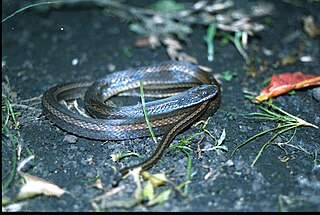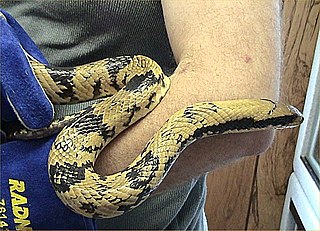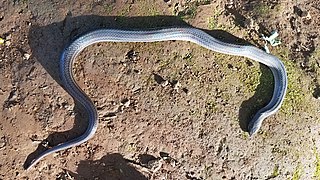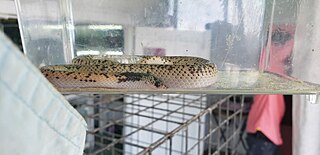
Thomas Say was an American entomologist, conchologist, and herpetologist. His studies of insects and shells, numerous contributions to scientific journals, and scientific expeditions to Florida, Georgia, the Rocky Mountains, Mexico, and elsewhere made him an internationally known naturalist. Say has been called the father of American descriptive entomology and American conchology. He served as librarian for the Academy of Natural Sciences of Philadelphia, curator at the American Philosophical Society, and professor of natural history at the University of Pennsylvania.

Charles Alexandre Lesueur was a French naturalist, artist, and explorer. He was a prolific natural-history collector, gathering many type specimens in Australia, Southeast Asia, and North America, and was also responsible for describing numerous species, including the spiny softshell turtle, smooth softshell turtle, and common map turtle. Both Mount Lesueur and Lesueur National Park in Western Australia are named in his honor.

André Marie Constant Duméril was a French zoologist. He was professor of anatomy at the Muséum national d'histoire naturelle from 1801 to 1812, when he became professor of herpetology and ichthyology. His son Auguste Duméril was also a zoologist, and the author citation Duméril is used for both André and his son.

Podocnemis is a genus of aquatic turtles, commonly known as South American river turtles, in the family Podocnemididae. The genus consists of six extant species occurring in tropical South America. Three additional species are known only from fossils.
Lystrophis is the genus of tricolored South American hognose snakes. They mimic milk snakes or coral snakes with their red, black, and white ringed patterns.

Tantilla is a large genus of harmless New World snakes in the family Colubridae. The genus includes 66 species, which are commonly known as centipede snakes, black-headed snakes, and flathead snakes.

Pseudocerastes is a genus of vipers endemic to the Middle East and Asia. It was originally created as a monotypic genus in 1896 by Boulenger for the species Pseudocerastes persicus, but three species are now recognised: the spider-tailed horned viper ; Persian horned viper and Field's horned viper. Like all other vipers, the members of this genus are venomous.

Coniophanes is a genus of colubrid snakes, commonly referred to as black-striped snakes, but they also have many other common names. The genus consists of 17 species, and despite the common name, not all of them display striping.

Stenocercus is a genus of South American lizards, commonly called whorltail iguanas, of the family Tropiduridae. This genus has 80 valid described species.

Hydrodynastes is a small genus of large colubrid snakes in the subfamily Dipsadinae. The genus is endemic to South America.

Tachymenis is a genus of venomous snakes belonging to the family Colubridae. Species in the genus Tachymenis are commonly known as slender snakes or short-tailed snakes and are primarily found in southern South America. Tachymenis are rear-fanged (opisthoglyphous) and are capable of producing a medically significant bite, with at least one species, T. peruviana, responsible for human fatalities.

Ninia sebae, commonly known as the redback coffee snake or the red coffee snake, is a species of small terrestrial snake in the family Colubridae. The species is endemic to Mexico and Central America south to Costa Rica. Although it resembles some venomous coral snakes in color and size, it is not venomous and seldom bites humans.

Oxyrhopus, the false coral snakes, is a genus of colubrid snakes that belong to the subfamily Dipsadinae. The genus is found in Central America and the northern part of South America, and it includes 15 distinct species.

Apostolepis is a genus of snakes in the subfamily Dipsadinae. However, the familial placement differs among sources. It has also been placed in the family Colubridae, subfamily Dipsadinae or Xenodontinae, or in the family Xenodontidae. The genus Apostolepis is endemic to South America.

Xenodon is a genus of New World snakes in the subfamily Dipsadinae of the family Colubridae.

Stenorrhina is a genus of snakes in the family Colubridae.

Phalotris is a genus of snakes of the subfamily Dipsadinae. All species of the genus Phalotris are found in South America. The specific name, mertensi, is in honor of German herpetologist Robert Mertens. The specific name, normanscotti, is in honor of Norman Scott, Jr., in recognition of his contribution to the knowledge of the herpetofauna of Paraguay.

Phimophis guianensis, also known commonly as Troschel's pampas snake, is a species of snake in the subfamily Dipsadinae of the family Colubridae. The species is endemic to South America.

Phimophis guerini, also known commonly as the Argentine pampas snake, is a species of snake in the subfamily Dipsadinae of the family Colubridae. The species is endemic to South America.
Phimophis vittatus, also known as the banded pampas snake, is a species of colubrid snake in the subfamily Dipsadinae. It is endemic to South America.

















